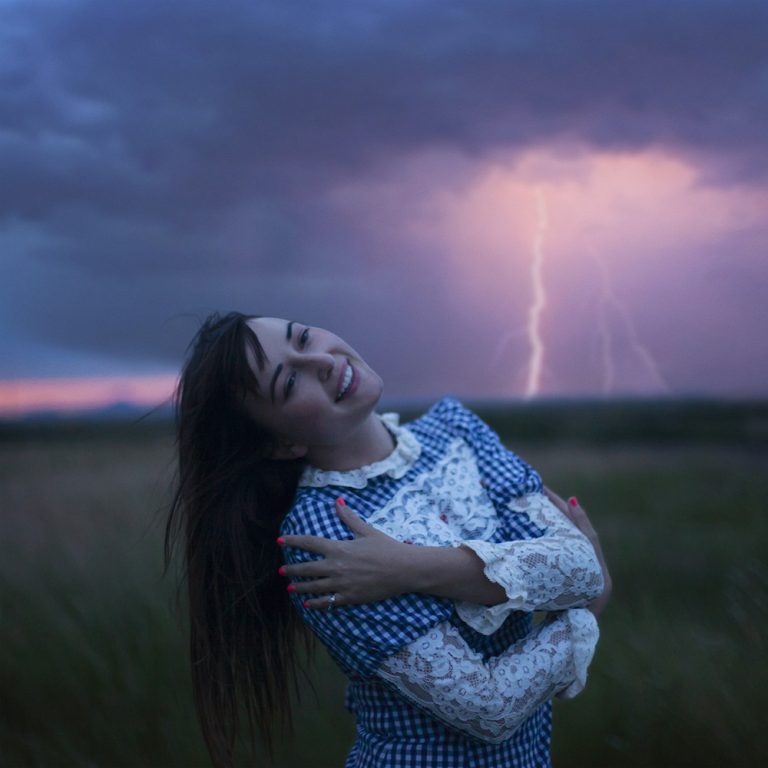While so-called bro-country may dominate much of the country charts at the moment, simultaneously emerging is a generation of young, progressive, sincere and immensely talented female musicians defiantly creating country music in their own image. It is these artists, like Erin Rae, Waxahatchee and Margo Price, who are really keeping the genre alive and well – making the sort of evocative and homespun music that would make the genre’s forebearers proud.
On the spectacular Time Ain’t Accidental, Jess Williamson solidifies her status as a member of this new canon. It’s an immensely affecting and enjoyable album, whose charms are abundant and imminently evident, but with depths that reveal themself over repeat listens. At its core, the LP is about transitions; the lessons we learn from the passage of time and the way time alternately strengthens and stresses our relationships with other people. It’s filled with soul-searching and excavation, but is never insular and self-centred. In short, it’s an album so attuned to the dualities of life, that it ultimately says something profound and essential about how we exist and move through this world.
The title-track and opener captures duelling forces – primarily, desire and reason – of a relationship that seems to have run its course, yet whose allure persists. “I have a life somewhere, real far away / You wouldn’t make a lick of sense in that place”, states Williamson before admitting her desire to hold on at least a little longer; “Please call me baby, if just for a day”. In the end, she accepts fate; “Torn up over timing, but time ain’t accidental”. It’s a sense of bittersweet acceptance that carries on into the following “Hunter”, where Williamson croons, “Baby, it’s fine, I’da blown your mind / But I guess I’m gonna give you space”.
But it would be unfair to say that Time Ain’t Accidental is primarily an album about surrendering to fate – or any other force for that matter. It’s determined and clear-eyed; focused on the ways we forge our own destiny. The excellent “Chasing Spirits” – a melodic charmer led by soft but persistent drumming – is filled with resolve; of interrogating the places we’ve become disillusioned with, leaving behind old habits and laying down new roots. “There’s nothing in L.A. for me”, Williamson admits, downcast, before moving ahead: “I could start a garden with the landlord / Something good and simple / And worth staying in town for”. It’s a compelling testament to the delicate, hard, but necessary path of forging ahead; of knowing when to change lanes and knowing when to stay put.
Williamson is a hugely talented lyricist – equally evocative when engaging in soul-searching confessions and interrogations (“Are my love songs lies / Now that the love is gone?”) and, when spinning rich, illuminating metaphors (“I want a mirror, not a piece of glass”). Indeed, the excellent closer “Roads” contains one of the most powerful similes I’ve heard in a long time: “You got a face like the moon controlling the waves / When I’m swimming in cold water, you watch me from the shore”.
But perhaps Williamson’s most definitive feature as a performer, even more so than her excellent words, is her voice – which is worthy of comparison to the genre’s very greatest, like Emmylou Harris and Lucinda Williams. Alternately lilting and devastating, its power is best displayed on “Tobacco Two Step” – and Williamson seems to know this, backdropping her vocals with little more than desolate, arpeggio guitar playing. “Let me get this round / I know it’s been so long”, she sings warmly, capturing the joys of reconnection. But a sense of something lost – hope, expectations, once-budding romance – takes over in the song’s second half. “Thought I was the one / With some kinda key”, sings Williamson longingly, her voice reaching towards its upper register and hanging onto every note until it begins to quiver. The result is genuinely transcendent.
Williamson’s voice is utilised with similar success on the LP’s best track “Stampede” – a tale of loss, addiction, the arrow of time and painful clarity. The song alternates jarringly between nostalgic recollections of a youthful, wild relationship and dispatches from a fractured present day. Alluding to the former partner/friend’s addiction, Williamson sings with utmost compassion: “Heard it’s a battle, I know you’re giving them hell”. It stands out as a particularly powerful moment on an album filled with such moments.
But what also stands out is the song’s bridge. Amidst an album of songs about looking to the future, here Williamson finds salvation in the past. “I can close my eyes and be back in our love”, she sings achingly, “An endless prairie, I see us there as kids / I loved you beyond time, beyond all pain / Shatter the land / The light remains”. It’s a reminder that although time can separate us from those we love, we remain forever changed from the relationships we had with others, as they do from the relationships they had with us.


